Stories about...Undergraduate Education Reform
 TechTogether Chicago to Redefine the Hacker Stereotype
TechTogether Chicago to Redefine the Hacker Stereotype
July 10, 2021
The nonprofit organization TechTogether formed with the aim to increase diversity in the hackathon community with their events and chapters. Now, the new chapter TechTogether Chicago aims to grow upon this mission with their work in organizing one of the few gender-focused hackathons in Illinois. In addition, TechTogether Chicago will be using the virtual environment as an opportunity to innovate and produce new workshops that can help inspire students to pursue careers in technology.
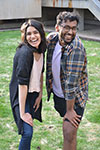 HackIllinois 2021 “Rekindled Connections” With The Tech Community
HackIllinois 2021 “Rekindled Connections” With The Tech Community
May 5, 2021
What exactly is HackIllinois? A student-run hackathon event developed to empower computer science students to produce technological solutions to problems society is facing, within one weekend. So, from April 9th to April 11th students at the University of Illinois Urbana-Champaign organized the annual student hackathon HackIllinois with the aim of developing projects on current problems facing society. Focusing on “Rekindling Connections” hundreds of participants from Illinois and beyond were able to network with industry professionals, mentors, and companies, while learning new skills through the workshops provided. HackIllinois staff as well learned how to adjust the once-in person event to a virtual event while maintaining the original mission of HackIllinois.
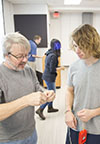 Physics Lab Reform Fosters Independent, Creative Thinking, Builds Student Skills
Physics Lab Reform Fosters Independent, Creative Thinking, Builds Student Skills
April 2, 2020
“Cause that’s a really big part of this independent, creative thinking, is to have the freedom to choose and to have the trust from your instructors that you are the expert.” – Katie Ansell
In fall 2020, the Physics Department is going to roll out reformed laboratory courses that they’ve been piloting over the last several years. But it won’t be business as usual. Instead of having students follow verbatim a long set of very detailed instructions, the idea is that the labs would foster independent, creative thinking, giving students the freedom to explore—and even fail—just like real scientists. Another goal is that the labs will help students develop two kinds of necessary skills: expertise in doing procedures plus “invisible” or involuntary skills—expertise to do something without even thinking about it. And contrary to the instructor-student hierarchy traditionally understood in years past, it’s not the instructor who will be the expert, but the students will be the acknowledged experts of the work they’ll be doing.
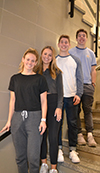 i-MADE Allows Engineering Underclassmen to Do Healthcare Design, Plus Help Others
i-MADE Allows Engineering Underclassmen to Do Healthcare Design, Plus Help Others
March 18, 2020
The new i-MADE RSO (Illinois Medical Advancements through Design and Engineering) is giving its members the best of both worlds. For instance, they’re gaining experience designing medical-field-related projects that will help them get jobs down the road. However, these projects don’t just look good on their resumes; i-MADE members are also getting the chance to make some people's lives better.
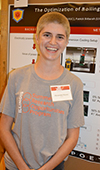 POETS REU Fosters Innovative Thinking to Change the Future of Power Dense Electronic Systems
POETS REU Fosters Innovative Thinking to Change the Future of Power Dense Electronic Systems
August 15, 2018
Ever wonder what the future of electronics could look like—say over the next decade? As part of the POETS (Power Optimization of Electro-Thermal Systems) ERC's 10-week, NSF-funded Research Experience for Undergraduates (REU), 15 students were able to explore the possibilities through authentic research experiences. Additionally, the students were exposed to a variety of educational programs that not only enhanced their knowledge base, and supplemented their research, but also exposed them to and prepared them for STEM careers.
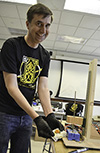 MechSE Outreach Guru Joe Muskin Exposes Teachers, Students of All Ages to STEM Education
MechSE Outreach Guru Joe Muskin Exposes Teachers, Students of All Ages to STEM Education
February 15, 2018
If you make the rounds of campus outreach very often, you will soon discover that one of the constants in the STEM-education-outreach universe is Joe Muskin. Education Coordinator for Mechanical Science and Engineering (MechSE), Muskin is an outstanding ambassador, both for his department and for the University. A tireless, creative teacher, he’s come up with innovative ways to communicate the material he’s teaching for the countless STEM education activities he’s been involved in. From teachers, to current Illinois students, to high school students, to elementary (and even pre-school) students, he’s broadened the knowledge of those he’s worked with about specific areas of engineering as well as STEM outreach. Regarding long-term impacts, he’s helped to pique participants’ interest in engineering and STEM education/outreach and has helped to recruit students into engineering, STEM, and to Illinois.
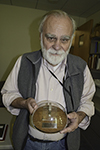 Jont Allen’s ECE 298 JA Course Reinforces Engineering Math Fundamentals While Surveying the History of Mathematics
Jont Allen’s ECE 298 JA Course Reinforces Engineering Math Fundamentals While Surveying the History of Mathematics
December 11, 2017
How well do AP students do on Illinois’ engineering math courses? To answer that question, about 12–15 years ago, a joint group of Illinois math and engineering professors studied the issue. While there is a strong correlation between AP scores of incoming students and how well they do in subsequent engineering math courses — students who get 5’s typically get A’s, 4’s get B’s, etc. — the study also discovered a great deal of variance and overlap between scores: though most students follow the norms, some end up getting A’s while others get D’s. Jont Allen, a professor in the Electrical and Computer Engineering (ECE) Department at Illinois, sees this enormous variability as a problem, so he set out to correct it. He created his own class, ECE 298 JA (his initials), to refresh incoming students in engineering fundamentals while teaching them the history of mathematics.
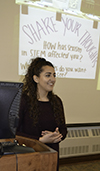 ESJ Scholars’ End-of-Semester Pecha Kucha Address Social Justice Issues in Engineering
ESJ Scholars’ End-of-Semester Pecha Kucha Address Social Justice Issues in Engineering
May 23, 2017
To showcase their final projects related to social justice issues they’re passionate about, eleven engineering undergrads who were part of the pilot for the new, two-semester-long Engineering for Social Justice (ESJ) Scholars program presented Pecha Kucha in an end-of-the-semester event. (In this Japanese presentation style, 20 slides are shown for 20 seconds each, keeping presentations by multiple speakers concise and fast paced). On hand to witness the May 8 final event, were a number of interested Engineering administrators, faculty, and members of the Illinois community.
FULL STORY
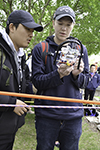 ME370 Students Find End-of-the-Semester Robot Races a Fun Learning Experience
ME370 Students Find End-of-the-Semester Robot Races a Fun Learning Experience
May 9, 2017
There was a lot riding on the 36 little robots navigating the ropes stretched across Boneyard Creek for ME 370's final competition. Held just north of the Engineering Building at noon on Wednesday, May 3rd, the contest drew a crowd of interested spectators who vicariously experienced the little robots' ups and downs, "oohing" and "ahing" during the spectacle. For the students, the contest not only motivated them to show off their engineering prowess; it got their competitive juices flowing as they sought to beat the socks off their opponents. And as an added incentive, teams whose robots beat the time set by Professor Socie's robot got to skip the upcoming final exam.
FULL STORY
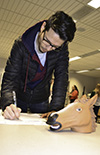 Alleyne and Wissa Foster Interdisciplinarity in New Biomimetics/ Bioinspiration Course
Alleyne and Wissa Foster Interdisciplinarity in New Biomimetics/ Bioinspiration Course
April 21, 2017
Folks in different disciplines, say engineering and biology, often don’t know how to talk to each other and, thus, have trouble collaborating. So Marianne Alleyne, a Research Scientist in Integrated Biology’s Entomology Department, and Aimy Wissa, an Assistant Professor in Mechanical Science and Engineering (MechSE), have teamed up to try to change that. They’ve designed a new biomimetics/bioinspiration course, ME 498/IB496, which seeks to use an advanced design experience to foster an interdisciplinary mindset among students in the course.
FULL STORY
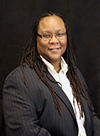 “Double Bind” Study Examines Obstacles Women of Color Face in Engineering
“Double Bind” Study Examines Obstacles Women of Color Face in Engineering
April 10, 2017
“You don’t want diversity just for the sake of diversity, don’t want them just for the sake of having them in the room. You want them for their perspective.” – Kelly Cross
Kelly Cross and several colleagues have begun a three-year study funded by the National Science Foundation to examine the experiences of women of color in engineering. Aptly named “The Double Bind of Race and Gender: A Look into the Experiences of Women of Color in Engineering,” the study Cross is conducting, along with Jenny Amos, Kathryn Clancy, Princess Imoukhuede, and Ruby Mendenhall, is looking at how women of color are doubly disadvantaged. They not only have to overcome historical gender inequities inherent in engineering, but also face the many challenges racial minorities encounter.
FULL STORY
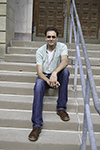 Student Spotlight: Hani Awni–Engineering for Social Justice Scholar
Student Spotlight: Hani Awni–Engineering for Social Justice Scholar
March 1, 2017
Hani Awni was not always interested in the role engineering should play in regards to social justice, but after venturing into the real world, he realized there was more. Hani is an engineering student who studied what he found “technically interesting” during his undergraduate years, but following two years working in Silicon Valley, he was left looking for more.
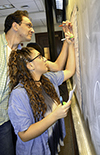 Engineering for Social Justice Scholars Program Helps Students Rethink Engineering's Role in Society
Engineering for Social Justice Scholars Program Helps Students Rethink Engineering's Role in Society
November 10, 2016
Are you passionate about righting historical inequities in our society? Do you have a penchant for STEM outreach to multi-ethnic middle-schoolers? For 18 engineering undergrads, the answer to both of these questions was a resounding “Yes!” So this fall, they signed up for Engineering’s new, two-semester-long Engineering for Social Justice (ESJ) Scholars Program.
FULL STORY
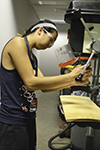 New ENG 198 Course Teaches Freshmen the Engineering Process, Teamwork, While Addressing Personal Mobility
New ENG 198 Course Teaches Freshmen the Engineering Process, Teamwork, While Addressing Personal Mobility
November 9, 2016
The idea behind ENG 198, the new Engineering course being piloted in fall 2016, is to give freshmen a chance to discover what it’s like to be an engineer early on…with a few caveats. Working as part of an interdisciplinary team, students are to come up with an innovation of benefit to society in the area of personal mobility. Plus, despite the students being freshmen, course planners don't intend to smooth out the path for the students; they want the students to navigate some bumps in the road—just like real engineers do. The goal? For students to learn the engineering process, experience teamwork, and come up with an end product that—while not necessarily 100% successful—lets them experience having contributed to society.
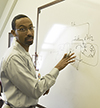 POETS Seeks to Change the Attitudes, Shape of Students in the STEM Pipeline
POETS Seeks to Change the Attitudes, Shape of Students in the STEM Pipeline
March 18, 2016
Andrew Alleyne, PI of the NSF-funded Center for Power Optimization of Electro-Thermal System (POETS), says the Center’s educational components are “all hypothetical at this point” and just “plans in people’s heads.” However, his plans and those of POETS’ Co-Directors of Education, Fouad Abd-el-Khalick (K-12 students) and Phil Klein (undergraduate/ graduate students), and Education Coordinator Joe Muskin appear to be well thought out and seek to strategically strengthen the education of targeted populations along the STEM pipeline.
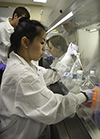 Bioengineering Undergrads Build Biobots in New BIOE 306 Course
Bioengineering Undergrads Build Biobots in New BIOE 306 Course
December 16, 2015
Biobots. The word smacks of scientific breakthroughs in the distant future, or the subject matter of some futuristic, sci-fi movie. But Illinois researchers are currently building and studying biobots as part of their research in this emerging field. However, they're not the only ones. This past semester, Illinois' Bioengineering department piloted a brand new course, BIOE 306, BioFabrication Lab, that teaches undergraduate students how to build them too. Developed as part of the NSF-funded EBICS (Emergent Behaviors of Integrated Cellular Systems) Science and Technology Center, the course distilled down cutting-edge EBICS research and initiated eight Bioengineering juniors and seniors into the mysteries of building with biology. In addition, the idea for this class was developed in part due to the Illinois Innovation Prize, which emphasized the need to teach the next generation of engineers and scientists how to "build with biology."
FULL STORY
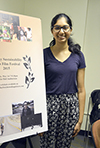 No Longer Just for Sleeping, Illinois Residence Halls Provide Learning Via LLCs
No Longer Just for Sleeping, Illinois Residence Halls Provide Learning Via LLCs
November 13, 2015
It’s not your mother’s dorm any more. In fact, according to Alma Sealine, Director of University Housing, and Nathan Sanden, Assistant Director of Residential Life, in the university housing world, dorm is a four-letter word—and not just because of the number of letters it has.
“The 4-letter word dorm means that you only eat and sleep in that location,” explains Sealine, “whereas we like the terminology residence hall because it accounts for the living and learning that occurs, in addition to just sleeping there.” Thus, the name Living-Learning Communities, or LLCs.
FULL STORY
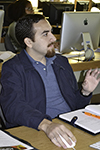 Under-Represented Students Visit Campus, Feel “At Home” at Illinois During ASPIRE
Under-Represented Students Visit Campus, Feel “At Home” at Illinois During ASPIRE
September 24, 2015
“We believe in the mission of trying to broaden participation; we believe in the value of diversity.” – Daniel Wong, Associate Director of the Graduate College's Educational Equity Program
With the Graduate College and individual departments, who helped provide meals, footing the bill, under-represented undergraduate students from all over the U.S. visited Illinois on September 20–22, 2015, as part of ASPIRE, a campus visit and early application program of the Graduate College’s Educational Equity Program.
FULL STORY
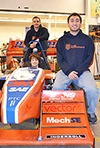 Formula SAE: Shaping Engineers Who Think Outside the Box
Formula SAE: Shaping Engineers Who Think Outside the Box
December 19, 2014
It makes sense that three MechSE upperclassmen, senior Mike Bastanipour and juniors Alex Allmandinger and Keith Harris, some of the leaders of Illinois' Formula SAE racing team, want careers in the automotive industry or motor sports. They've spent the last several years designing and competing a high-performance racing car and interning at companies like Ford and Chrysler. But, they've been infatuated with cars since way before that.
FULL STORY
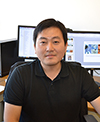 SungWoo Nam Creates Virtual Lab, Promotes Undergraduate Research
SungWoo Nam Creates Virtual Lab, Promotes Undergraduate Research
November 19, 2014
SungWoo Nam, an Assistant Professor in Mechanical Science and Engineering, appreciates the little things—the really little things—like on the nanoscale or the atomic level. However, when it comes to STEM education, he likes to work with students across the entire spectrum: graduate students, undergraduates, and even high school students. But his passion is exposing a sometimes overlooked group—college sophomores—to the wonders and the rewards of research, like his own research on nanoscale devices and materials, particularly graphene.
FULL STORY
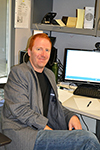 ECE's Daniel Wasserman Does "Whatever It Takes to Get Students to Learn"
ECE's Daniel Wasserman Does "Whatever It Takes to Get Students to Learn"
September 25, 2014
Assistant Professor Daniel Wasserman of Illinois' Department of Electrical and Computer Engineering (ECE) has never met a STEM education challenge he hasn't liked. While he enjoys working with Illinois engineering students (whom he says "are, of course, top, top students, and they're fantastic"), for a change of pace—and maybe a challenge—he likes to work with non-engineering college students, high school students, even grade-schoolers.
FULL STORY
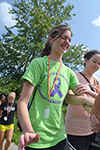 WIE Camp 2014: Creating Community for Female Engineering Students
WIE Camp 2014: Creating Community for Female Engineering Students
August 25, 2014
Dean Susan Larson recalls that when she took over as the Director of Women in Engineering (WIE) in 2003, she thought, "The women need something to get started. They're a minority, but if they know one another, they'll be ok. They'll form a community; they'll make those connections." So, hoping to "bring them all together to get to know one another and get to know the campus and some of the instructors and advisors here," she started WIE Camp.
FULL STORY
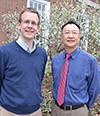 CEE Undergraduate Education: Shaping Multi-Disciplinary Problem Solvers
CEE Undergraduate Education: Shaping Multi-Disciplinary Problem Solvers
August 19, 2014
"Our agenda is to educate and help develop the next generation of civil engineers so that they are not only theoretically rigorously strong, but can also tackle big multidisciplinary issues in a way that they have deep understanding and are also capable of working with people from different disciplines to solve societal challenges." Liang Liu
FULL STORY
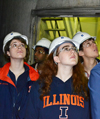 Students in New Sustainability Course Tackle Real-World, Campus Problems
Students in New Sustainability Course Tackle Real-World, Campus Problems
December 10, 2013
Ever complained about the poor condition of Illinois' interstates? Ever worried about our ever-burgeoning landfills full of garbage? Ever complained about the pot holes in campus streets, or been embarrassed that visitors' first impression of campus is a whiff of the South Farms? The 14 Civil and Environmental Engineering students who took CEE 398 PBL, a brand new sustainability course in Fall 2013, got the chance to do something about some of these issues.
FULL STORY
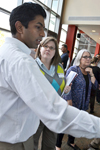 SIIP: Reforming Undergraduate Engineering to Engage Students
SIIP: Reforming Undergraduate Engineering to Engage Students
October 29, 2013
The goal of SIIP (the Strategic Instructional Initiatives Program) is to reform Engineering's core undergraduate courses to engage students and improve learning. How? By changing the way the courses are taught, then checking with students to see if it's been effective. Is it working? Based on feedback from educators at SIIP's recent Poster Showcase on Friday October 18, it appears to be.
FULL STORY
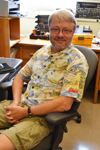 Mats Selen—Changing the Way Physics is Taught
Mats Selen—Changing the Way Physics is Taught
October 8, 2013
"Well I have to confess, I was always in the closet about teaching. I did all my research, but I secretly always loved teaching as much as I did research, probably more…so suddenly, if they could be the same things, what could be better?" – Mats Selen, Physics Professor
Mats Selen loves teaching physics, and he's not ashamed to admit it. After 20 years doing particle physics research, which he found to be both exciting and rewarding, when a successful experiment of his ended, he figured, "This might not be a bad time to switch what I am doing. So I thought to turn over a new leaf and come out of the closet and be a real-life teacher all the way around."
FULL STORY
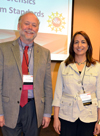 Campus Experts to Develop a Digital Forensics Undergraduate Curriculum
Campus Experts to Develop a Digital Forensics Undergraduate Curriculum
May 31, 2013
Want to become a digital detective? There's a new course on campus this fall: CS 498, Special Topics. Despite the course's nondescript rubric, it invites students from a number of disciplines, including computer science, criminal justice, and even law, to investigate the exciting, up-and-coming field of Digital Forensics.
FULL STORY
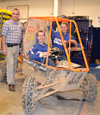 Hands-On Experience With Cars Prepares Students to Problem Solve Down the Road
Hands-On Experience With Cars Prepares Students to Problem Solve Down the Road
October 10, 2012
For the last five years at least, Illinois' Mike Philpott has been working double shifts. Most days, the Interim Associate Head for Undergraduate Programs may be found in the Department of Mechanical Science and Engineering, or teaching ENG 491. Evenings, weekends, and probably part of Christmas break, however, this race car enthusiast can be found supervising students at the Engineering Students Project Lab, watching students navigate cars around cones on Assembly Hall's parking lot, keeping his fingers crossed in downtown Houston in hopes that his team will travel six miles on a miniscule amount of gas, or holding his breath lest the Formula SAE car break down during the main competition in Michigan.
FULL STORY
 Engineering Ambassadors: Poised to Change the Way Engineering is Presented
Engineering Ambassadors: Poised to Change the Way Engineering is Presented
September 18, 2012
"When engineering and STEM educators talk about 'changing the conversation,' it's a huge step forward to even be thinking about communicating science and engineering as a conversation instead of as a boring, one-sided, monotonous lecture where one person is talking, or worse, reading off a slide filled with bulleted lists and long chunks of text." Leslie Srajek
FULL STORY
 Illinois to Participate in AAU Initiative to Improve Undergraduate STEM Education
Illinois to Participate in AAU Initiative to Improve Undergraduate STEM Education
August 16, 2012
As the nation's need for more STEM graduates has increased, so has the need to improve our undergraduate STEM education. The Association of American Universities (AAU), of which Illinois is a member, has established a 5-year initiative on STEM (science, technology, engineering, and mathematics) undergraduate teaching. Particularly focused on the first two years of college, the initiative seeks to help higher education institutions assess the quality of STEM teaching, share best practices, and encourage the use of the most effective STEM teaching methods.
STORY
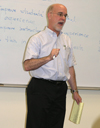 Illinois' Engineering to Revamp Targeted Undergraduate Courses
Illinois' Engineering to Revamp Targeted Undergraduate Courses
May 18, 2012
Despite being highly-ranked nationally, the College of Engineering is not content to rest on its laurels. Striving to improve aspects of its undergraduate education programs by specifically targeting large courses (sometimes dubbed by students as "weed-out courses"), the College recently initiated the Strategic Instructional Initiatives Program (SIIP). Its goal: to renovate specific undergraduate courses to improve student engagement and learning outcomes.
STORY
 Robots and Real-World Problems:
Robots and Real-World Problems:
Michael Loui Tackles Engineering Education
October 24, 2011
Building robots and designing machines that solve real-world problems—it doesn't sound like the work of college freshmen, but professors in the College of Engineering at the University of Illinois have found that first-year engineering students are up to the challenge. Problem-based learning is a teaching method that gives students a specific problem to solve and leaves it up to them to come up with the solution. Engineering faculty have been using problem-based learning, or as engineers call it, design laboratory, for years. They have seen the benefits of the technique first-hand: it promotes problem-solving skills, develops creative skills, increases student retention, and promotes students' confidence in the subject area.
STORY
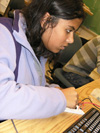 ECE 101 Engages Students by "Harnessing" Their Interests
ECE 101 Engages Students by "Harnessing" Their Interests
November 4, 2011
Illinois' General Education requirements are often viewed by students and teachers alike as exactly that—requirements to be gotten out of the way and checked off the list. To view these classes as opportunities to learn and grow is the perspective of the minority, and a few in this minority are doing something about it. At least two teachers in the Department of Electrical and Computer Engineering are trying to change the way students and educators view these basic requirements and are offering a class that pushes students to go beyond the minimum.
STORY
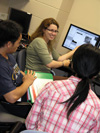 Amos's Atomic Microscope Gives Students Close-Up Look at Cells
Amos's Atomic Microscope Gives Students Close-Up Look at Cells
August 26, 2011
A few adventurous young bioengineers are taking cell research to a whole new level—the atomic level. University of Illinois bioengineering students now have access to a new tool for looking at cells called an Atomic Force Microscope (AFM). In March, the Roy J. Carver Charitable Trust provided the $290,000 machine, in the form of a grant, to the university and to bioengineering lecturer Jennifer Amos. Amos will lead a new class this fall called “The Bioreactor Lab” that will focus on teaching students about the use Atomic Force Microscopy in bioengineering.
STORY
 Chemistry Receives Funding to Improve Services to Undergraduate Students
Chemistry Receives Funding to Improve Services to Undergraduate Students
Get students interested in chemistry! While the goal of Chemistry at Illinois may be simply stated, to achieve it, the Department has taken on a task that is not so simple: to design and implement a new undergraduate chemistry curriculum. Besides fostering student interest in chemistry, the Department hopes to give students a solid foundation in chemical competencies, attract under-represented students to STEM majors, and provide students in introductory chemistry with a knowledge of chemical research problems.
STORY












.jpg)
















